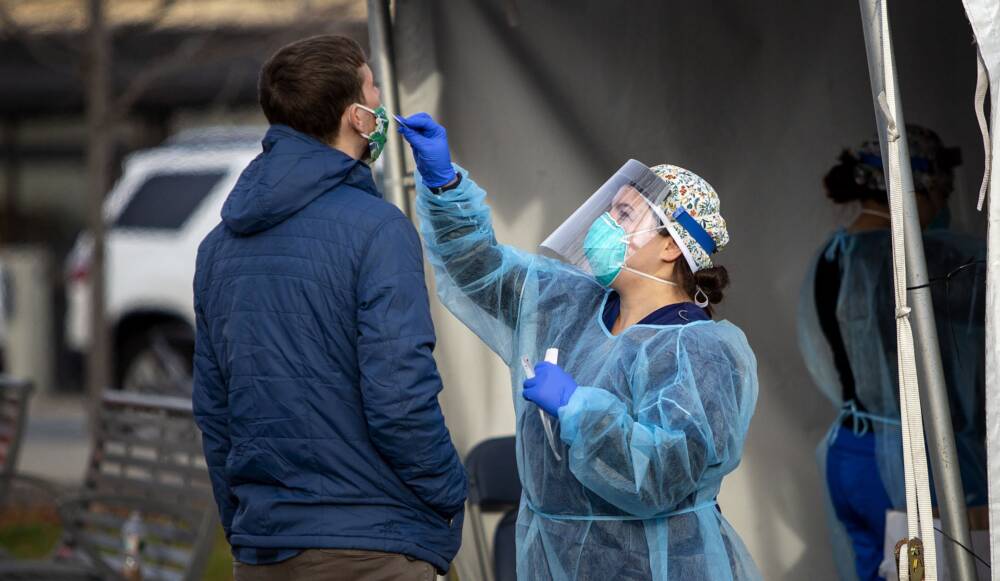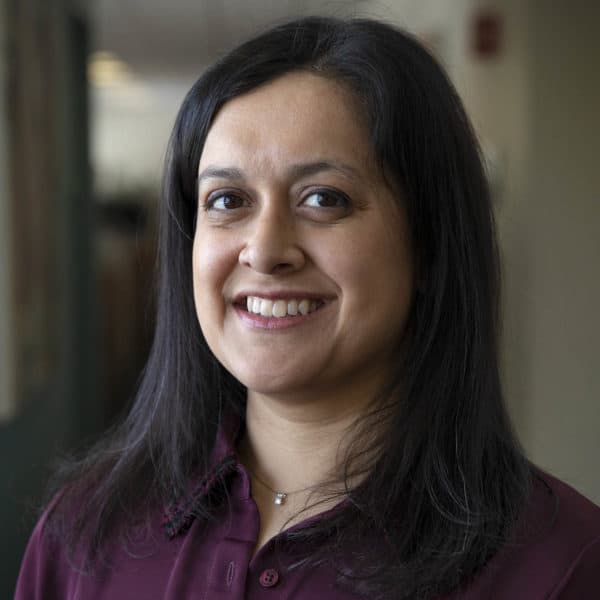Advertisement
4 years after the COVID emergency, what the coronavirus means today

Four years ago this week, as fears were growing about a novel coronavirus, then-Massachusetts Gov. Charlie Baker declared a state of emergency. The World Health Organization declared the threat a pandemic. Businesses and schools started to close, and a new disease called COVID-19 suddenly upended our lives.
The virus has now touched just about everyone and taken a tremendous toll, contributing to nearly 22,000 deaths and more than 118,000 hospitalizations in Massachusetts alone.
Today, the social distancing era is over, and millions have received COVID vaccines. The U.S. Centers for Disease Control and Prevention recently loosened precautions by dropping a five-day isolation rule, treating COVID much like other common respiratory illnesses.
But COVID is still with us, even if it is not as dangerous as it once was, experts say, largely because so many people have built up immunity from vaccinations and prior infections.
The most recent data from Massachusetts health officials shows COVID-related emergency department visits are minimal and hospital admissions are low — though hospitals remain crowded with patients suffering from other ailments.
On this fourth anniversary of the pandemic, WBUR reached out to several experts who have been on the front lines of studying and fighting COVID since its early days. Here are some of their thoughts about COVID then — and now — lightly edited and condensed:
How they’re reflecting on four years of COVID
Shira Doron, hospital epidemiologist, Tufts Medical Center: When I think back to what was happening four years ago, I think of it as a time when we were doing both too much and too little. We should not have allowed prolonged school closures, restrictions on the use of playgrounds and beaches, or extended delays on elective medical care to occur. At the same time, we should have had widespread testing much earlier, and we should have been more prepared to tackle supply chain and capacity shortages.
Bill Hanage, associate professor of epidemiology, Harvard T.H. Chan School of Public Health: Lots of very intense memories both professional and personal, given the far reaching impact of the pandemic on all our lives. And the truly ghastly memory of knowing the outline of what was coming at us and trying to convince people of it.
Sandeep Jubbal, infectious disease physician, UMass Memorial Medical Center: The outset of the pandemic was chaotic and stressful due to lack of treatment and vaccines, and the spread of misinformation. But the silver lining was the unprecedented global collaboration, knowledge sharing, and application of cutting-edge technology that allowed the rapid development of treatments and vaccines. Without these tools, our world would have been a very different place with mortality numbers beyond imagination.
Cassandra Pierre, infectious disease physician and associate hospital epidemiologist, Boston Medical Center: Over time, I've observed people tune out the ongoing impact of COVID — for their own sanity and the need to move forward. The fact that the majority of these admissions and deaths occur among the elderly and the immunocompromised may have made COVID more predictable, tame and potentially ignorable. But the elderly and immunocompromised remain essential members of our community and our own families — and even the young and healthy remain vulnerable to complications like long COVID. COVID is still impacting us, even if we're not acknowledging it.
The significance of COVID now
Doron: It was anyone’s guess whether widespread immunity would ever bring us to the point we have reached today. I never imagined that we would have a vaccine in such a short time. So overall, I consider where we are today, after "only" four short years, to be better than I expected and a huge relief.
Hanage: On the one hand, I remain horrified at how much illness and death has been considered acceptable, here and elsewhere. On the other, I’m astonished by the pace with which effective vaccines were developed and available — and also the reluctance of some to make use of them leading to yet more preventable suffering and death.
Jubbal: Constant mutations are part of the natural viral evolution. The virus has had multiple variants, and may continue to evolve, but has gone "weaker." And at some point, it will die away, as we have seen historically with other coronaviruses.
Their optimism — and pessimism
Doron: Immunity is long-lasting, and it is working to protect us against severe disease. This has been the case despite the ongoing emergence of new variants. That gives me hope. What I am pessimistic about is trust in public health. We are seeing dangerously low levels of vaccination. Polls show that people don’t want to listen to health authorities any more.
Hanage: I expect that bit by bit, the population immunity to COVID will continue to improve, and severe outcomes will dwindle — although I don’t know how long that will take. I am pessimistic that the reaction to the pandemic will be to withdraw resources from public health rather than renew them.
Pierre: I'm feeling optimistic and pessimistic about the same thing: vaccines. Optimistic because the pandemic did create the ideal conditions for the acceleration of vaccine development. That said, we have certainly seen an erosion in vaccine confidence and acceptance. I'm concerned that we'll see the resurgence of diseases we've previously eliminated — and also worried that if another pandemic-level threat appears, low vaccine acceptance will negate the benefits of a rapid and safe vaccine development.
